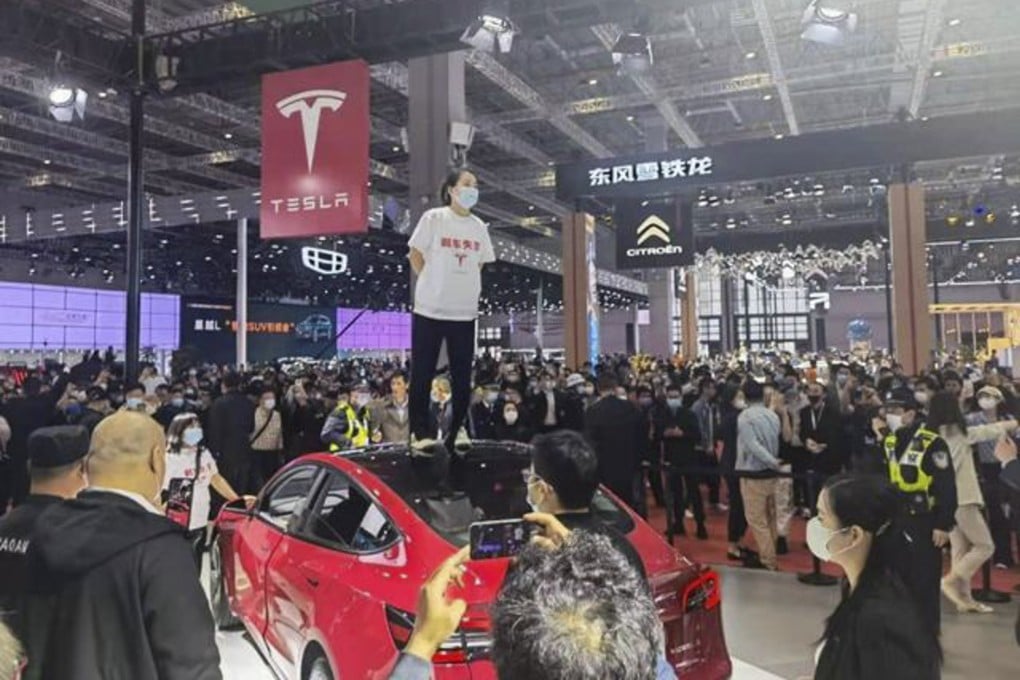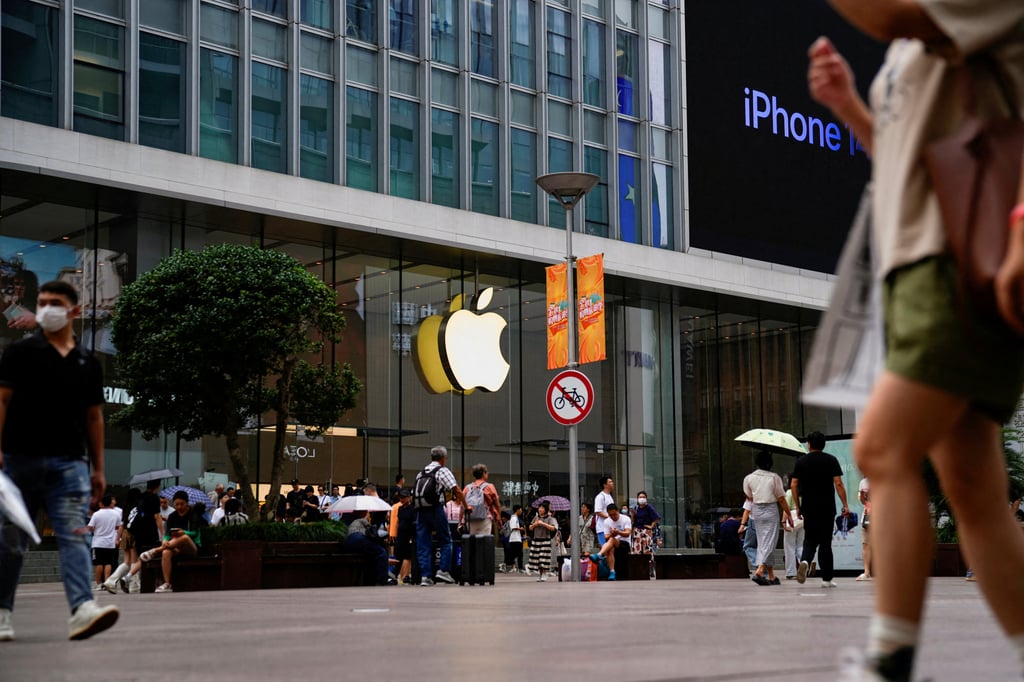Opinion | Apple, Tesla win lawsuits in China, as Beijing projects ‘rule-of-law’ message to foreign businesses
- A growing nationalist sentiment among the general public is adding uncertainty for foreign brands operating in China
- The new mood marks a subtle change from three years ago when Beijing was more assertive in clipping the wings of Big Tech firms

Apple and Tesla, two US multinational companies with a huge presence in China, have won two small but significant consumer-led lawsuits in the country, in a sign that Beijing is trying to project a “rule-of-law” message to foreign investors.
In the second case, the Shanghai Qingpu District People’s Court has ordered a Tesla Model 3 owner, who protested against an alleged “brake failure” in his car by climbing on top of a Tesla vehicle at the 2021 Shanghai auto show, to pay the carmaker 172,275 yuan (US$23,500) in compensation. The protester, surnamed Zhang, was also ordered by the court to post an apology on her Weibo account for at least 30 days, and pay for an apology notice in the Legal Daily, the official newspaper for China’s court system.

The two cases are not related and the initial rulings have been appealed, but the message is clear: the legitimate interests of foreign businesses are protected by Chinese laws.
In the past two years, China’s image as an ideal destination for foreign investment has been tarnished by the country’s draconian Covid-19 lockdowns, and its tightened security screenings of consulting and legal services. Meanwhile, a growing nationalist sentiment among the general public is adding uncertainty for foreign brands operating in China.
Apple and Tesla are household brands in the US that have also achieved great market success in China. But as the country’s overall mood regarding the US has soured amid heightened geopolitical tensions and rising awareness of national security, both companies have been the target of public suspicion. Tesla vehicles, for instance, were denied access to certain government premises and even public sites due to data security concerns. It was only founder and CEO Elon Musk’s recent visit to Beijing that enabled the electric vehicle (EV) maker to convince regulators to approve its long-awaited data security clearance.
Apple has had a similar trust problem in China. While it has made concessions to comply with Chinese regulations over data localisation and content moderation, an iPhone is still seen as a potential risk factor if used by certain government departments. After Washington banned the telecommunications products of Chinese tech champion Huawei Technologies, there were voices on domestic social media calling for Beijing to consider a tit-for-tat retaliation by targeting the iPhone.

